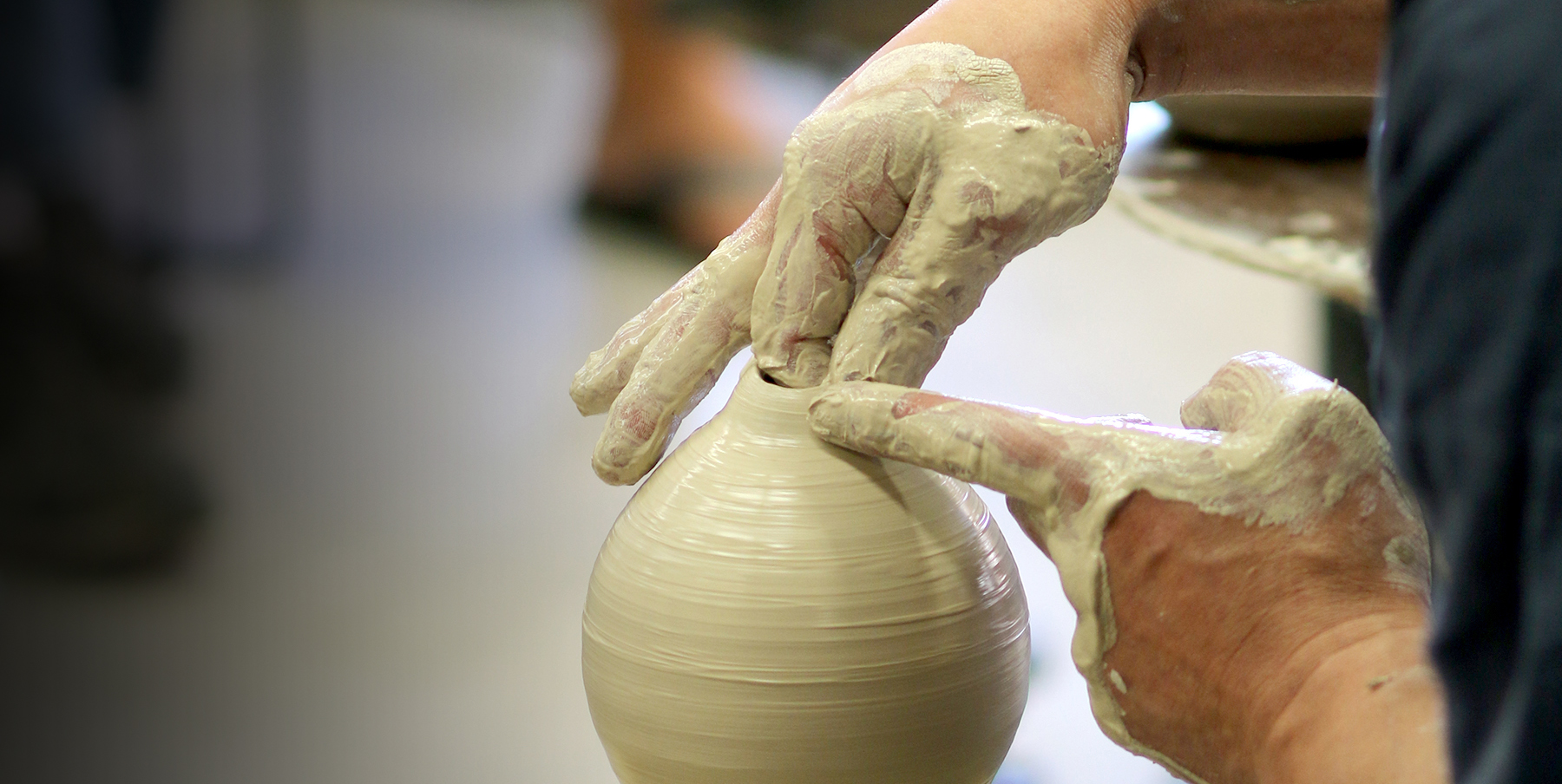How Do You Teach Art Online? PCC Instructors Have Found A Way - 01/11/21
PORTLAND, Ore. – When the COVID-19 pandemic hit, art faculty at Portland Community College had a big problem. How were they going to shift their classes to the virtual world and not lose the critical hands-on instruction that comes with them?
Turns out they had a plan.
“Oftentimes we have had to make something out of nothing in terms of ideas, materials and physical resources,” said printmaking instructor Tatiana Simonova, who usually teaches in-person at the Sylvania Campus in Southwest Portland. “Art naturally breeds innovation and solutions, but I have been impressed by how creatively rich the remote environment has been.”
Simonova recreated the energy of the printmaking studio classroom and sense of community by planning in-class drawing or print work for remote courses so students could collaborate from their respective homes. The Bulgarian native has even incorporated open virtual labs where students focus on their projects and receive live feedback.
“I think it will be great if students can work on homework projects together and support one another in the making, much like students do in the communal studio space at PCC,” said Simonova, who had to delay a month-long artist residency program in Japan last summer due to the virus. “PCC students have been such troopers during this transition from in-person to remote instruction.”
Ben Buswell of the Rock Creek Campus in Washington County has ironed out initial issues for his drawing curriculum. He has cut down the amount of supplies that students need and has worked with the PCC Bookstore to make sure that students can use their financial aid for materials. In addition, he has adapted assignments so that they can be done with limited resources. For example, he shows students how to measure without a ruler.
“It’s easier than you think,” laughed Buswell, who has joined other art instructors to create a Youtube channel demonstrating their skills. “We all really wanted to make sure that we found ways to give students the one-on-one help and sense of community that we have in our face-to-face classes. The art faculty have been sharing resources and talking about successes and things we can improve on. The collegiality has really raised the bar for everyone.”
The other major shift, he said, is subject matter. Buswell’s assignments cover certain skills and concepts, and in an in-person class these usually take the form of drawing a communal subject like still life or a model. Because his students aren’t in a shared space, they cannot draw the same things.
“Students now have a lot more influence over the subject matter of their drawings,” he added. “This has been great because through their choices they are getting extra experience with personal expression. It has been really exciting to hear their thoughts and watch ideas grow.”
The once vibrant campus studio labs where students mold clay into works of art and fire them in state-of-the-art kilns are now quiet. But PCC’s ceramics faculty are innovating as students have been shown how to create an at-home art studio so they can participate in online classes and work on projects during virtual lab hours — receiving input from fellow students and instructors.
“The nice part about these courses is that it’s bringing people together to talk about a subject they all want to learn about,” said Charlie Washburn, long-time PCC ceramics instructor at Sylvania. “We’re having class time where we are experiencing ceramics together, and open lab time where people get together to talk about what they are experiencing, and discuss tips and techniques.”
Ceramics faculty offer an unfired clay class and lab hours that help students create their home studio and go through the processes of making clay. Staff will fire pieces that students keep when PCC reopens its physical campuses.
“They appreciate the opportunity to connect with others and help them be inspired and keep making,” said instructor Kowkie Durst. “Ceramics is all about touch and can be a great way to reconnect by taking a ceramics course with clay.”
About Portland Community College: Portland Community College is the largest post-secondary institution in Oregon and provides training, degree and certificate completion, and lifelong learning to more than 60,000 full- and part-time students in Multnomah, Washington, Yamhill, Clackamas, and Columbia counties. PCC has four comprehensive campuses, eight education centers or areas served, and approximately 200 community locations in the Portland metropolitan area. The PCC district encompasses a 1,500-square-mile area in northwest Oregon and offers two-year degrees, one-year certificate programs, short-term training, alternative education, pre-college courses and life-long learning.
Visit PCC news on the web at http://news.pcc.edu/
